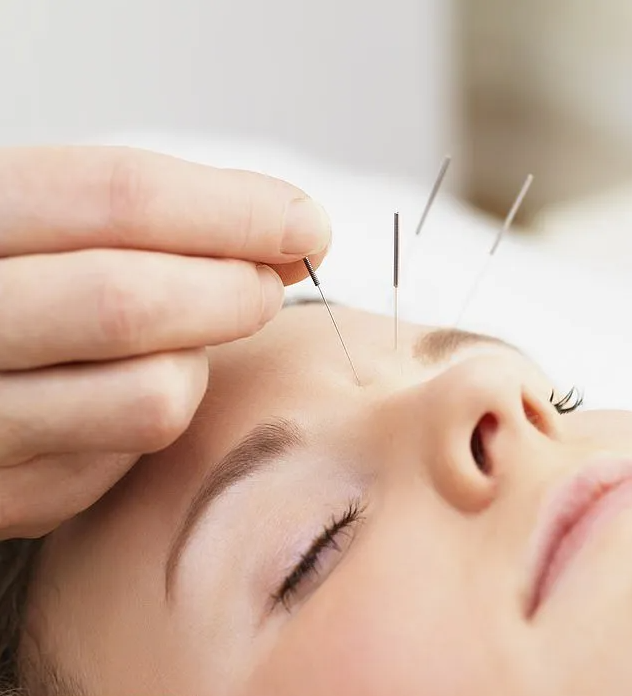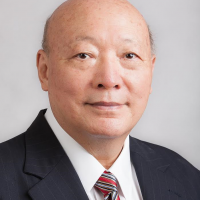Acupuncture is a key component of Traditional Chinese Medicine (TCM) and has been practiced for thousands of years to treat various ailments, including headaches and migraines. The fundamental principle behind acupuncture is the concept of Qi (pronounced “chee”), which is the vital energy that flows through the body along pathways known as meridians. According to TCM theory, disruptions or imbalances in the flow of Qi can lead to health problems, including headaches and migraines.
Methodology
- Qi Regulation: Acupuncture aims to restore the balance and smooth flow of Qi throughout the body. By inserting thin needles at specific points along the meridians related to headache and migraine relief, acupuncture practitioners can regulate the Qi flow, helping to alleviate pain and discomfort.
- Pain Modulation: Acupuncture stimulates the nervous system, including the release of endorphins, the body’s natural painkillers, and neurotransmitters such as serotonin and dopamine. These biochemical changes can help modulate pain signals, reducing the intensity of headache and migraine symptoms.
- Muscle Relaxation: Tension and tightness in the muscles of the head, neck, and shoulders are common contributors to headaches and migraines. Acupuncture can help relax these muscles by promoting blood circulation and releasing muscle tension. This relaxation effect can provide immediate relief from headache pain and may also prevent future occurrences.
- Stress Reduction: Stress is a significant trigger for headaches and migraines in many individuals. Acupuncture has been shown to have a calming effect on the nervous system, reducing stress levels and promoting a sense of relaxation and well-being. By addressing stress and its physiological effects, acupuncture can help prevent headaches and migraines from occurring or recurring.
- Improving Blood Circulation: Acupuncture stimulates blood flow to the brain and other areas of the body. Improved circulation can help deliver oxygen and nutrients to tissues more efficiently, promoting healing and reducing inflammation, which may contribute to headache and migraine symptoms.
- Regulating Hormones: Hormonal fluctuations, particularly in women, can trigger migraines. Acupuncture may help regulate hormonal imbalances by influencing the endocrine system, including the hypothalamus, pituitary gland, and ovaries. By restoring hormonal balance, acupuncture can reduce the frequency and severity of hormonal headaches and migraines.
- Individualized Treatment: One of the strengths of acupuncture is its holistic approach to treatment. Acupuncturists tailor treatment plans to each individual, taking into account their unique constitution, symptoms, and underlying causes of headaches or migraines. This personalized approach ensures that the root causes of the condition are addressed, leading to more effective and long-lasting relief.
- Adjunct Therapy: Acupuncture is often used in conjunction with other TCM modalities, such as herbal medicine, dietary therapy, and lifestyle recommendations. These complementary therapies can enhance the effectiveness of acupuncture treatment for headaches and migraines by addressing additional contributing factors and supporting overall health and well-being.
Backed by Research
The effectiveness of acupuncture in treating headaches, including migraines, has been supported by various studies and clinical trials. While individual responses to acupuncture may vary, research consistently suggests that acupuncture can provide significant relief for many individuals suffering from headaches and migraines. Here are some key points highlighting the evidence supporting acupuncture for headache relief:
- Clinical Trials: Numerous randomized controlled trials (considered the gold standard in scientific research) have demonstrated the efficacy of acupuncture in reducing the frequency, intensity, and duration of headaches, including migraines. These trials often compare acupuncture treatment to sham acupuncture (using non-penetrating needles at non-acupuncture points) or standard care, and consistently show favorable outcomes for acupuncture.
- Meta-Analyses: Meta-analyses, which pool data from multiple studies, have found that acupuncture is superior to both sham acupuncture and standard care in reducing headache frequency and intensity. These analyses provide robust evidence supporting the use of acupuncture as a viable treatment option for headaches and migraines.
- Mechanistic Studies: Research has also investigated the mechanisms underlying acupuncture’s effects on headaches. Studies using neuroimaging techniques have shown that acupuncture modulates brain activity and alters the perception of pain, providing insight into how acupuncture may work to alleviate headache symptoms.
- Real-World Evidence: Beyond clinical trials, real-world evidence from clinical practice and patient testimonials further supports the effectiveness of acupuncture for headache relief. Many individuals report significant improvements in their headache symptoms after undergoing acupuncture treatment, often with long-lasting results.
- Guidelines and Recommendations: Acupuncture is recognized as a recommended treatment option for headaches and migraines by various medical organizations and guidelines, including the American Academy of Family Physicians, the American Headache Society, and American Migraine Foundation to name a few.
Wildwood Acupuncture Center
At Wildwood Acupuncture Center, we believe in the power of acupuncture to not only alleviate symptoms but also to address the root causes of headaches and migraines. Here’s how our approach can help you find relief:
- Customized Treatment Plans: Our experienced acupuncturists will work closely with you to develop a personalized treatment plan that targets your specific symptoms and underlying imbalances. By addressing the root causes of your headaches or migraines, we can provide long-lasting relief and improve your overall well-being.
- Natural Pain Relief: Acupuncture stimulates the body’s natural healing mechanisms, promoting the release of endorphins and neurotransmitters that help modulate pain signals. By targeting specific acupuncture points related to headache and migraine relief, we can effectively reduce the intensity and frequency of your symptoms without the need for medication.
- Stress Management: Stress is a common trigger for headaches and migraines. Our holistic approach to acupuncture includes techniques to promote relaxation and stress reduction, helping you better manage the stressors in your life and prevent future episodes.
- Muscle Relaxation and Improved Circulation: Tension and tightness in the muscles of the head, neck, and shoulders can exacerbate headache and migraine symptoms. Acupuncture promotes muscle relaxation and improves blood circulation, providing immediate relief and preventing recurrence.
- Comprehensive Care: In addition to acupuncture, we offer complementary therapies such as herbal medicine, dietary recommendations, and lifestyle modifications to support your overall health and well-being. Our goal is to empower you with the tools and knowledge you need to take control of your health and live a headache-free life.
Don’t let headaches or migraines hold you back from enjoying life to the fullest. Take the first step towards relief by scheduling a consultation with one of our skilled acupuncturists at Wildwood Acupuncture Center. Experience the healing power of acupuncture and discover a natural solution to your headache and migraine woes.

References:
A Systematic Review and Meta-analysis of the Therapeutic Effect of Acupuncture on Migraine
A central analgesic mechanism of acupuncture for migraine: An ongoing functional MRI study
Acupuncture reduced the medical expenditure in migraine patients
